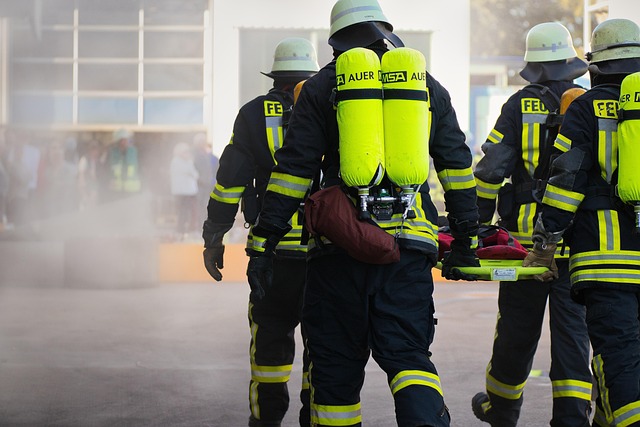Security Jobs in the UK: Requirements and Daily Duties
In the UK, security companies are hiring native English speakers who are ready to work. Positions can include training and cover duties such as patrolling, access control and customer service. Salaries can be higher than you think. Learn more about opportunities

What Are the Basic Requirements for UK Security Jobs?
To work in security within the UK, you must obtain a Security Industry Authority (SIA) licence, which is mandatory for most security roles. The application process requires passing identity checks, criminal background screening, and completing approved training courses. Most employers prefer candidates who are native English speakers or demonstrate strong English communication skills, as clear communication is essential for incident reporting and customer interaction.
Age requirements typically start from 18 years old, though some positions may require candidates to be 21 or older. Physical fitness standards vary depending on the role, with some positions requiring the ability to walk for extended periods or respond quickly to incidents. Many employers also value reliability, punctuality, and the ability to remain alert during long shifts.
Common Tasks in UK Security Jobs
Daily responsibilities in security positions encompass a wide range of activities designed to maintain safety and security. Patrol duties form a core component, involving regular walks around designated areas to check for suspicious activity, security breaches, or safety hazards. Security personnel monitor CCTV systems, review footage for unusual incidents, and document observations in detailed reports.
Access control represents another fundamental task, where security officers verify identification, manage visitor registration, and ensure only authorised individuals enter restricted areas. Many roles also include customer service elements, such as providing directions, assisting with inquiries, and maintaining a professional, helpful demeanour while representing the employer’s brand.
The Role of Communication and Initial Training
Effective communication skills are paramount in security work, as officers must interact with colleagues, supervisors, emergency services, and the general public. Training programmes focus heavily on developing these skills alongside technical competencies. Initial training typically covers conflict resolution, emergency response procedures, report writing, and legal responsibilities.
Most security companies provide comprehensive on-the-job training that complements SIA certification requirements. This training often includes fire safety procedures, first aid basics, and site-specific protocols. Communication extends beyond verbal interaction to include radio operation, written reporting, and coordination with law enforcement when necessary.
Where You Might Work and What to Expect on Site
Security professionals work across diverse environments, each presenting unique challenges and requirements. Retail locations require crowd management skills and theft prevention awareness, while corporate offices focus on access control and visitor management. Healthcare facilities demand sensitivity and discretion, whereas construction sites emphasise safety compliance and equipment protection.
Industrial sites, airports, and event venues each have specialised security needs. Shift patterns vary considerably, with many positions offering 24-hour coverage requiring night, weekend, and holiday work. The work environment can range from indoor reception areas to outdoor patrol routes, depending on the specific role and location.
Career Progression and Specialisation Opportunities in UK Security
The security industry offers numerous advancement pathways for dedicated professionals. Entry-level positions can lead to supervisory roles, training positions, or specialised areas such as close protection, cybersecurity, or investigation services. Many professionals pursue additional certifications in areas like conflict management, crowd control, or security management.
Career progression often includes opportunities to work with high-profile clients, government contracts, or international security firms. Some professionals transition into related fields such as risk assessment, security consultancy, or law enforcement. The experience gained in security roles provides transferable skills valuable across multiple industries.
Security Job Salary Expectations and Employment Benefits
| Position Level | Annual Salary Range | Hourly Rate | Benefits Package |
|---|---|---|---|
| Entry Level Security Officer | £18,000 - £22,000 | £9.50 - £11.50 | Basic pension, uniform provided |
| Experienced Security Guard | £22,000 - £28,000 | £11.50 - £14.50 | Enhanced pension, paid training |
| Security Supervisor | £28,000 - £35,000 | £14.50 - £18.00 | Management training, career development |
| Senior Security Manager | £35,000 - £50,000+ | £18.00 - £25.00+ | Comprehensive benefits, vehicle allowance |
Salary levels in UK security jobs often exceed initial expectations, particularly for experienced professionals or those in specialised roles. Geographic location significantly influences earning potential, with London and major metropolitan areas typically offering higher wages to offset living costs. Many employers provide additional benefits including overtime opportunities, shift premiums, and performance bonuses.
Prices, rates, or cost estimates mentioned in this article are based on the latest available information but may change over time. Independent research is advised before making financial decisions.
Getting Started in Your Security Career
The security sector continues expanding as businesses prioritise safety and risk management. Entry into the field begins with obtaining proper licensing and identifying employers who provide comprehensive training and career development opportunities. Many major security companies actively recruit candidates who demonstrate reliability, communication skills, and professional attitude, even without prior security experience.
Research local security services in your area to understand specific requirements and opportunities. The combination of stable employment, competitive wages, and career advancement potential makes security work an attractive option for individuals seeking meaningful employment in a growing industry that directly contributes to community safety and business protection.




